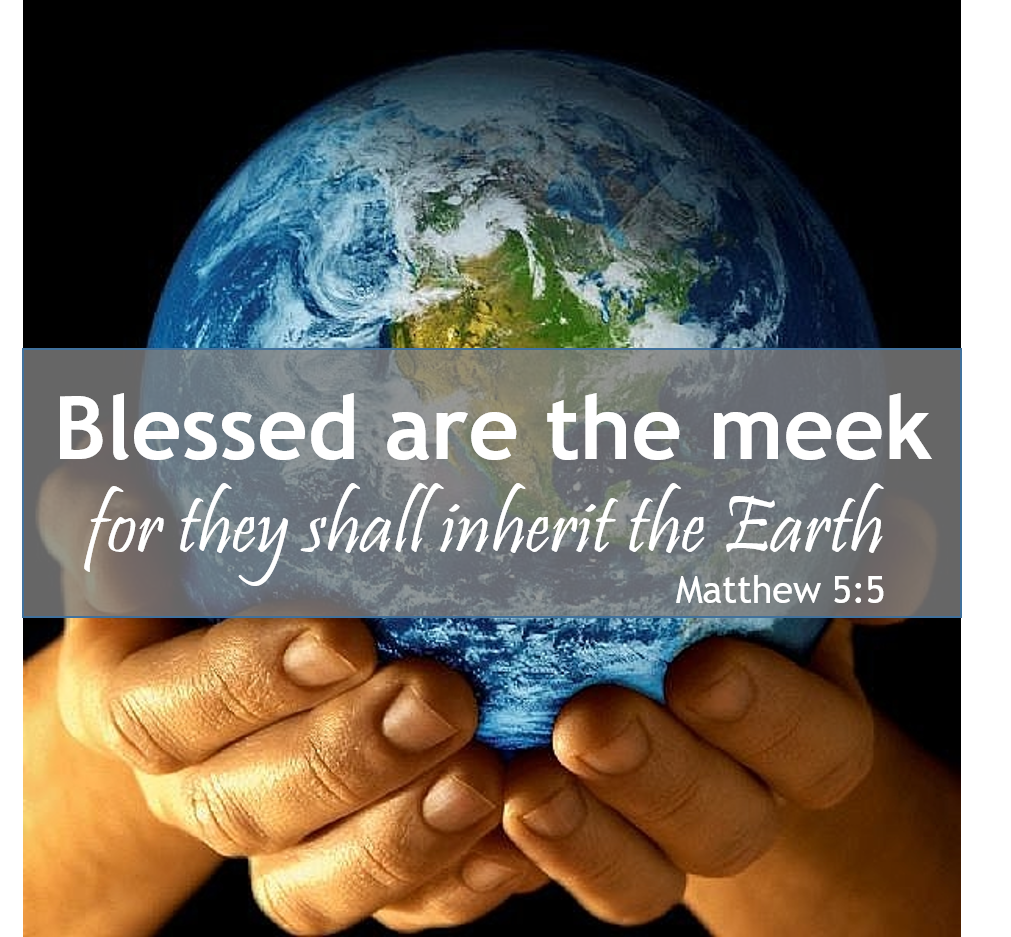As heirs of earth, we are called to a sustainable view of our role. God has given the home of humanity into the keeping of those who are humble and nonviolent, yet those who will stand for what matters to all of us.
Indeed, the fate of our human home, God’s creation, is at stake.
Martha Stortz writes that in the Beatitudes, Jesus envisions and offers a home for all people. One of the Biblical figures exemplifying meekness, according to most commentators, is Moses. He led his people out of slavery in Egypt toward the promised land. At the end of his life, he was shown the land where his people would find home and sanctuary. It took a lifetime to make that journey and he died without entering the promised land. Stortz says, “Jesus uttered this blessing with Moses in mind, restoring to him the land he never got to enter. In this blessing, Moses finally makes it to the promised land. Jesus gift to Moses is also ours. All we have to do is say yes.”
The meek seem to have a generational view of how to care for themselves, each other, and the earth. They (we) aren’t scrambling for immediate rewards and riches. They (we) are looking at the long-term impact and consequences of how humans interact and live together and care for the planet. — Rev Gail
… That’s here, that’s home, that’s us. On it everyone you love, everyone you know, everyone you ever heard of, every human being who ever was, lived out their lives. The aggregate of our joy and suffering, thousands of confident religions, ideologies and economic doctrines, every hunter and forager, every hero and coward, every creator and destroyer of civilization, every king and peasant, every young couple in love, every mother and father, hopeful child, inventor and explorer, every teacher of morals, every corrupt politician, every “superstar,” every “supreme leader,” every saint and sinner in the history of our species lived there—on a mote of dust suspended in a sunbeam. — Carl Sagan
We are all passengers aboard one ship, the Earth, and we must not allow it to be wrecked. There will be no second Noah’s Ark. — Mikhail Gorbachev
Vine Deloria, Jr. spoke of the Seven Generations in very practical terms. In his cantankerous way, he would express extreme annoyance at the romanticism of the concept as it was popularly used. Because, as explained to him, the generations we are sworn to protect and revere are the seven we are most immediately connected to. Think about it for a moment. It is possible that many of us have known or will know our great-grandparents, grandparents, parents, our children, grandchildren, and great-grandchildren. Even if we aren’t fortunate enough to have been in the physical presence of those who came before us, we usually have stories, songs, and photos that have been shared so that we feel a connection. We also want to make sure our kids and grandkids are healthy, safe and aware of where they come from. So, counting our own generation—ourselves, siblings, and cousins—we are accountable to those seven generations. — David Wilkins
Challenge or Question: How do you care for the earth? What else, in this Lenten period, can you choose to do to tend our human home?

